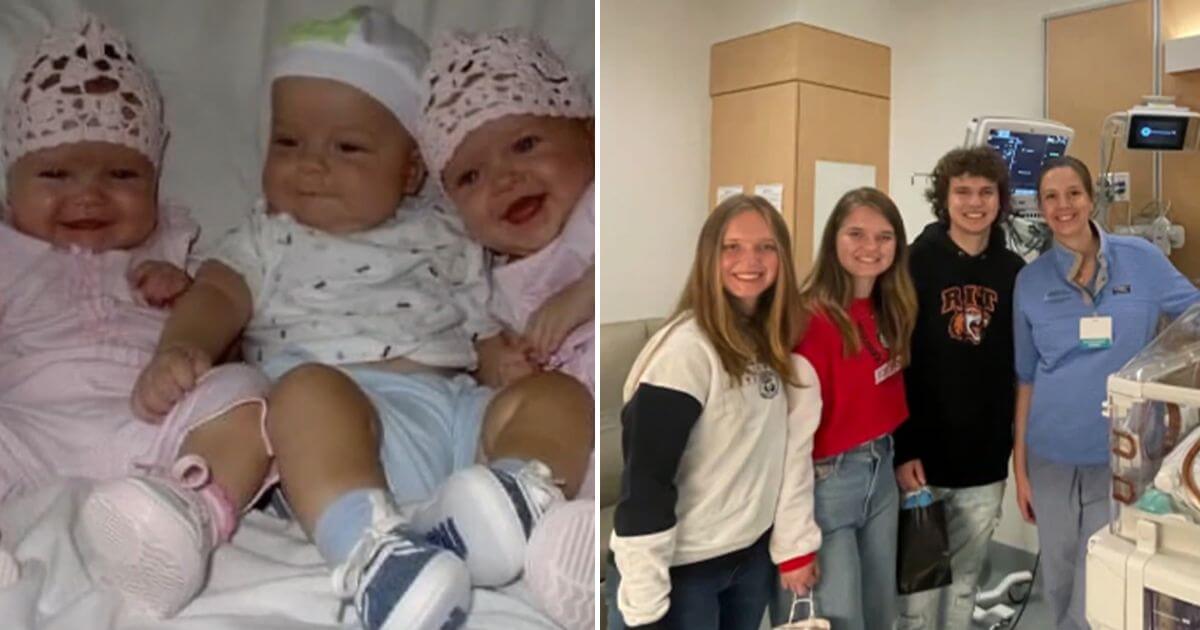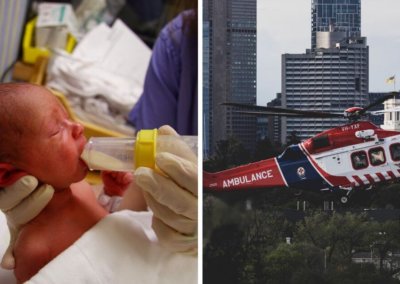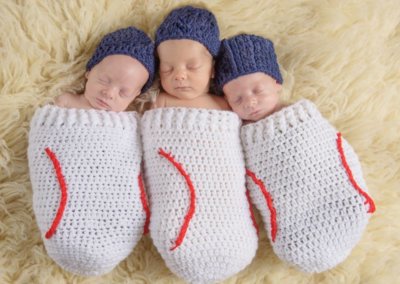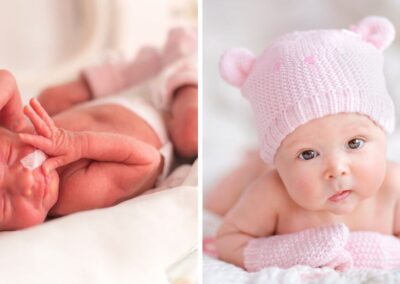After eighteen years, triplets who were born prematurely in a hospital in Boston, Massachusetts have reunited with the medical team who cared for them.
Gabriella, Isabella and David Zelenchuk were all born prematurely at the Brigham and Women’s Hospital in 2006. At birth, Gabriella weighed just 3lbs 2oz, Isabella 2lbs 4oz and David 4lbs. All three had to spend time in the neonatal intensive care unit (NICU), with Isabella, the smallest of the three, there for almost two months.
Their mum, Renata, was a nurse at the hospital where the babies were born. She said there were “a lot of challenges. A lot of tears. Happy moments and sad moments”, Despite all their challenges, the babies “beat all the odds”.
Now, eighteen years after their dramatic beginning, the triplets are now graduating from school and paid a visit to the NICU where they had received care.
The teenagers found that some of the staff remembered them
“[The staff] remembered where we were in the hospital”, Gabriella said. “They remembered our parents holding us and coming every day to see us… We also got to see [nappies] NICU babies wear”.
The siblings were given alumni t-shirts from the hospital, and were able to tell the staff about their plans for college. All three are planning to go into the medical field, with Gabriella going into a pre-med course, Isabella going to study biomedical engineering and public health, and David about to start a degree in biomedical engineering.
One of the nurses who cared for the triplets, Jennifer Kirby-Cencarik, said “I’m so used to handling babies and not having actual conversations with my patients, but then I met them again and they were so engaging, kind, and intelligent”.
“I always tell families, ‘I’m never going to forget you.’ They’re not just a number here. They’re someone important to me”.
The triplets’ mother still feels grateful to the NICU staff
“I want to say a special thank you to the wonderful NICU nurses”, Renata said. “They take care not only of the most vulnerable and tiniest patients but also their parents”.
“It’s been over 18 years, but that time is still fresh in my mind. All of the nurses, doctors, respiratory therapists — everyone took such great care of my babies. I will never forget it, and I’m very, very grateful for it”.
“Being a parent of premature babies is a very frightening and emotional journey, so I want to thank them for providing a compassionate hand and a warm hug when we needed it the most”, she added.
Survival rates have improved for babies born below the abortion limit
The medical and biomedical knowledge that the triplets will be going on to learn at university is more advanced now than it was when they were born. This can be seen in the improvements in medical technology that have led to improved survival rates for premature babies. The last time the abortion limit was lowered in 1990, the improved survival rates for extremely prematurely born babies was one of the key considerations that motivated this change.
By the same logic, and informed by the improved survival rates for babies born at 22 and 23 weeks gestation, the abortion time limit should also be lowered now.
Key studies in recent years have documented the improving outcomes for these babies. In the decade to 2019 alone, the survival rate for extremely premature babies born at 23 weeks doubled, prompting new guidance from the British Association of Perinatal Medicine (BAPM) that enables doctors to intervene to save premature babies from 22 weeks gestation. The previous clinical guidance, drafted in 2008, set the standard that babies who were born before 23 weeks gestation should not be resuscitated.
Spokesperson for Right To Life UK, Catherine Robinson, said: “This wonderful story reminds us that many babies who are born prematurely go on to live healthy and fulfilling lives, and are often able to give back to the institutions that supported them as premmies. Hopefully the triplets’ studies will enable them to help the lives of others as they were helped as children by the NICU team”.












